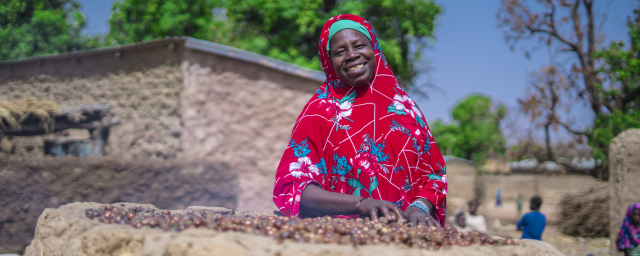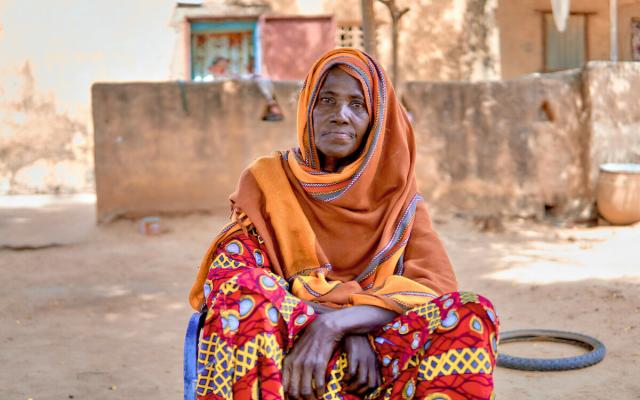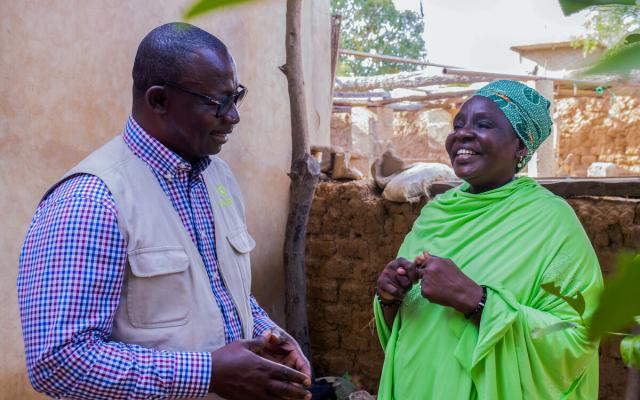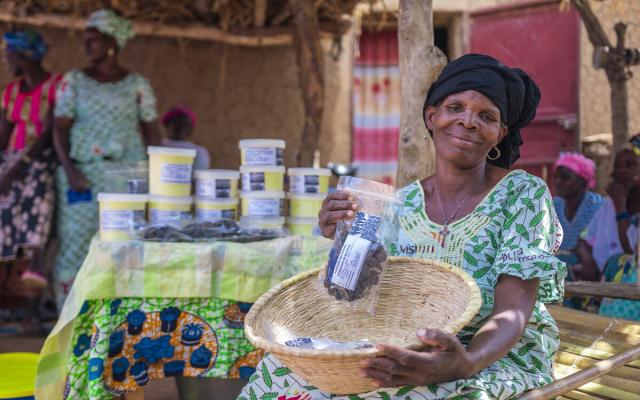
Mariam is part of a cooperative that makes improved cooking firepits. The use of these new firepits for cooking contributes to the reduction of deforestation and reduces the time women have to spend collecting wood for the fire. (Photo: Diafara Traoré/Oxfam)
Mali, officially the Republic of Mali, a landlocked country in West Africa, is known for its music, beautiful mud architecture, and for the city of Timbuktu, a center of culture and history. But Mali faces challenges due to complex crisis linked to insecurity, socio-economic challenges, and the impact of climate change.

Satou Coulibaly, a disabled woman, is a member of the Association des femmes pastures de Baraoueli (AFPB). Living on her own, she can no longer carry out her income-generating activities, let alone participate in her neighbors' harvest to earn money to feed herself or provide for her needs. (Photo: Mahamadou Mary Diarra/Oxfam)
Challenges
Mali is grappling with persistent conflict and multi-faceted insecurities that have led to one of the highest rates of internal displacement globally. In 2023, over 400,000 people were internally displaced, primarily women and children, as armed groups intensified their activities. Over 6 million people need humanitarian assistance and over 1 million people face severe food insecurity.
Opportunities exist in strengthening local governance and enhancing community resilience through targeted interventions and capacity-strengthening initiatives. Oxfam is addressing these challenges through humanitarian and advocacy interventions.
Impact on People
With limited access to basic services such as healthcare, education, and nutrition, many families struggle to meet their daily needs. The rise in food insecurity has led to increased malnutrition among children, threatening their long-term health and development. Lack of security hampers livelihoods, perpetuating cycles of poverty.

Laila Dicko (right) is a teacher by profession and the President of the Women's Leaders Association of Macina, Mali. The association works closely with the municipality and the administrative authorities to address the issue of peace and human security in her community: crisis of political leadership, management of natural resources, and tensions between farmers and herders. (Photo: Issa Sanogo/Oxfam)
Oxfam’s Role
Oxfam started operations in Mali since 1995. We play a crucial role in addressing the humanitarian and development challenges by focusing on water, sanitation, hygiene (WASH), food security, and protection services. We prioritize gender equality, support for young people, and advocacy initiatives. By collaborating with local partners and authorities, we aim to build resilient communities capable of overcoming adversity and fostering social cohesion.

Apolline is the president of the women's association working to produce transformed goods in the village. The women of the group received training through the "Regreening Africa" project. (Photo: Diafara Traoré/Oxfam)
Looking Ahead
It is essential to enhance funding for humanitarian responses and strengthen local governance structures. Continued investment in community resilience programs and inclusive policies will be vital in ensuring sustainable development in Mali.